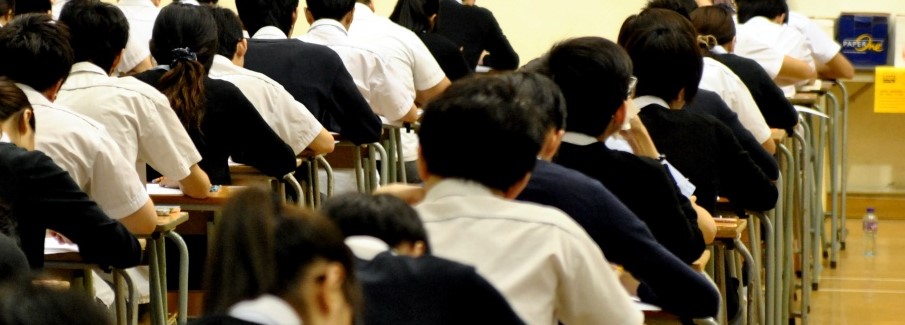Economics
1. Overview
Economics studies how human beings manage scarce resources to satisfy their unlimited wants, how they make decisions to maximise gain, and also how different factors affect economic performance at a macro level.
Students will use economic concepts and theories, combined with economic information presented in different modes, to explain and analyse real life economic problems and phenomena.
2. Aims
Through the study of economics, students will:
2.1 Know basic economic jargon, concepts and theories.
2.2 Apply knowledge of economics in tackling different problems and topics.
2.3 Understand economic information presented in words, numbers or graphs
2.4 Develop problem-solving and critical thinking skills, so that they may make rational and smart decisions when dealing with social issues.
3. Course Structure
3.1 Microeconomics: Students will study and analyse individual agents in an economy. They will study basic economic concepts, including the issue of resource allocation in society, producers and production, market and price, competition and market structures, efficiency, fairness and the role of the government, monopoly pricing, anti-competition behaviour and competition policies.
3.2 Macroeconomics: Students will study the effect on society of macroeconomic measures. They will learn different measurements of economic performance, income levels and price levels. They will also study currency and banks, macroeconomic problems and policies, international trade and finance, economic growth and development.
4. Learning and Teaching Strategies
4.1 Provide examples from daily life
Students are encouraged to discuss events from their daily lives through an economic lens, through which they can put theoretical knowledge into practice and understand the relationship between economics and their daily lives. Not only will this raise students’ learning motivation, it will also improve their skills in applying economic knowledge, thus boosting learning effectiveness.
4.2 Catering for learners’ diversity through learning in small steps
Students will learn basic economic concepts first, then learn to draw diagrams and analyse them, eventually progressing to wide-ranging economic issues. In order to better equip students for the HKDSE, examination questions from past years have been categorised according to their topic, and distributed as classwork, homework, and self-study material, with the goal of improving students’ confidence and ability to face examinations.
4.3 Provide learning opportunities outside of the classroom
Biweekly external publications have been subscribed to, giving students opportunities to read about hot topics in economics, raising their learning motivation. Students are encouraged to answer data-based questions in the publications, thereby improving their analytical skills for current affairs.
4.4 Experiential learning
Every year, students set up a stall at the Chinese New Year’s Market. This experience allows students to gain entrepreneurial and economic knowledge through bidding, purchasing, logistics, cost and profit calculations, price-setting and running a business. The real life knowledge gained from this experience serves to expand students’ horizons, preparing them for their future studies or careers.
4.5 Learning methods
- Hold proactive and independent learning attitudes.
- Pay attention to current affairs and the news.
- Nurture the ability to understand economic information presented in words, numbers or graphs, and the ability to convey economic concepts through graphs.
- Develop problem-solving and critical thinking skills.
- Conduct simple calculations related to economics.
4.6 Further studies
Economics nurtures students to analyse issues through an economic lens. This helps them study economics, management, finance, law, environmental studies and public administration at higher education levels.
4.7 Career development
Students are able to work in fields such as business, banking, finance, investment, and economic analysis.
Business, Accounting and Financial Studies (BAFS)
BAFS nurtures students interest and skills in business, provides them with practical skills and knowledge, and imparts on them positive values and proactive attitudes, so that students can learn how to recognise needs, conceptualise business ideas, and realise their business ideas to bring economic and social benefits.
Students will be well-prepared in different areas through the promotion of an integrative understanding of basic business concepts, such as business environment, accounting, management, personal financial management. This preparation will help them appropriately manage their own finances and make well-informed decisions in a wide range of business and financial affairs in the future.
This subject includes a core component and an elective component. The core component includes four modules: business environment, management theories, accounting theories, and personal financial management. The core component focuses on basic business knowledge and skills to equip students for further studies or careers. The elective component is a module on business management, including marketing management, human resources management, and financial management.
Through the study of business knowledge, students can not only become members of the business world, but they can also become socially responsible citizens. Using their business knowledge, they can proactively make smart decisions in the ever-changing world.
 |
| Students put theories into practice through running a stall at the Chinese New Year Fair |
* The College reserves the final right to offer programmes and subject courses.



